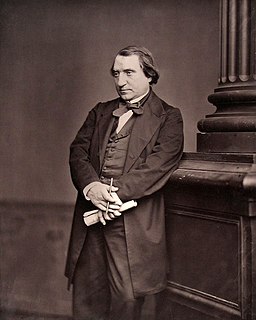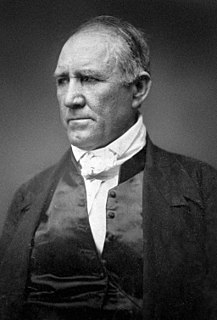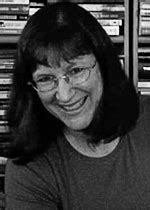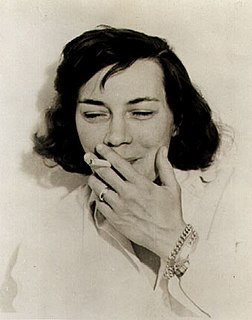A Quote by C. L. R. James
It is Toussaint's supreme merit that while he saw European civilisation as a valuable and necessary thing, and strove to lay its foundations among his people, he never had the illusion that it conferred any moral superiority. He knew French, British, and Spanish imperialists for the insatiable gangsters that they were, that there is no oath too sacred for them to break, no crime, deception, treachery, cruelty, destruction of human life and property which they would not commit against those who could not defend themselves.
Quote Topics
Against
Among
Any
Break
British
Civilisation
Commit
Could
Crime
Cruelty
Deception
Defend
Destruction
European
Foundations
French
Gangsters
Had
His
Human
Human Life
Illusion
Insatiable
Knew
Lay
Life
Merit
Moral
Moral Superiority
Necessary
Never
Oath
People
Property
Sacred
Saw
Spanish
Superiority
Supreme
Them
Themselves
Thing
Those
Too
Treachery
Valuable
Were
Which
While
Would
Related Quotes
I would lay down my life to defend any one of the States from aggression, which endangered peace or threatened its institutions. I could do more for the union, but I wish to do more; for the destruction of the union would be the destruction of all the States. A stab in the heart is worse then a cut in a limb, for this may be healed.
I had come to discover that "safe" was an illusion, a pretense that adults wrapped around their children- and sometimes themselves- to make the world seem comfortable. I had discovered that under that thin cover of let's-pretend, monsters and nightmares lay, and that not all of them came from places like the moonroads or the nightling cities. Some of the monsters were people we knew. People we thought we could trust.
Thirdly, the supreme power cannot take from any man any part of his property without his own consent: for the preservation of property being the end of government, and that for which men enter into society, it necessarily supposes and requires, that the people should have property, without which they must be supposed to lose that, by entering into society, which was the end for which they entered into it; too gross an absurdity for any man to own.
Machiavelli says that if as a ruler you accept that your every action must pass moral scrutiny, you will without fail be defeated by an opponent who submits to no such moral test. To hold on to power, you have not only to master the crafts of deception and treachery but to be prepared to use them where necessary.
Here I swear, and as I break my oath may ... eternity blast me, here I swear that never will I forgive Christianity! It is the only point on which I allow myself to encourage revenge... Oh, how I wish I were the Antichrist, that it were mine to crush the Demon; to hurl him to his native Hell never to rise again - I expect to gratify some of this insatiable feeling in Poetry.
There is something that governments care for more than human life, and that is the security of property, and so it is through property that we shall strike the enemy.... Those of you who can break windows--break them. Those of you who can still further attack the secret idol of property, so as to make the Government realize that property is as greatly endangered by women's suffrage as it was by the Chartists of old--do so. And my last word is to the Government: I incite this meeting to rebellion!
How could believers, people who regard themselves as true Muslims, get on those planes, quoting the words of God delivered through the Prophet to themselves, knowing they were going to kill innocent people? They saw the other passengers on the plane. They could see the woman with her little daughter. They saw people making phone calls to their wives or their husbands. They knew who they were killing.
The last point for consideration is the supposed disposition of the people to interfere with the rights of property. So essential does it appear to me, to the cause of good government, that the rights of property should be held sacred, that I would agree to deprive those of the elective franchise against whom it could justly be alleged that they considered it their interest to invade them.
... as recently as the mid-1970s, the most well-respected criminologists were predicting that the prison system would soon fade away. Prison did not deter crime significantly, many experts concluded. Those who had meaningful economic and social opportunities were unlikely to commit crimes regardless of the penalty, while those who went to prison were far more likely to commit crimes again in the future.
They were not friends. They didn't know each other. It struck Tom like a horrible truth, true for all time, true for the people he had known in the past and for those he would know in the future: each had stood and would stand before him, and he would know time and time again that he would never know them, and the worst was that there would always be the illusion, for a time, that he did know them, and that he and they were completely in harmony and alike. For an instant the wordless shock of his realization seemed more than he could bear.
The Second World War had a precipitating effect in that it discredited the empires, as well as bankrupting them. Not only could you no longer, if you were a colonial subject of France in Africa, look to France as a model of power and influence and civility after what had happened in the war. Nor could the French any longer afford to run their empire. And nor could the British, although they were not discredited in the way that the French were.
We are unreasonably desirous to separate the goods of life from those evils which Providence has connected with them, and to catch advantages without paying the price at which they are offered to us. Every man wishes to be rich, but very few have the powers necessary to raise a sudden fortune, either by new discoveries, or by superiority of skill in any necessary employment; and among lower understandings many want the firmness and industry requisite to regular gain and gradual acquisitions.
Westley closed his eyes. There was pain coming and he had to be ready for it. He had to prepare his brain, he had to get his mind controlled and safe from their efforts, so that they could not break him. He would not let them break him. He would hold together against anything and all. If only they gave him sufficient time to make ready, he knew he could defeat pain. It turned out they gave him sufficient time (it was months before the Machine was ready). But they broke him anyway.
































